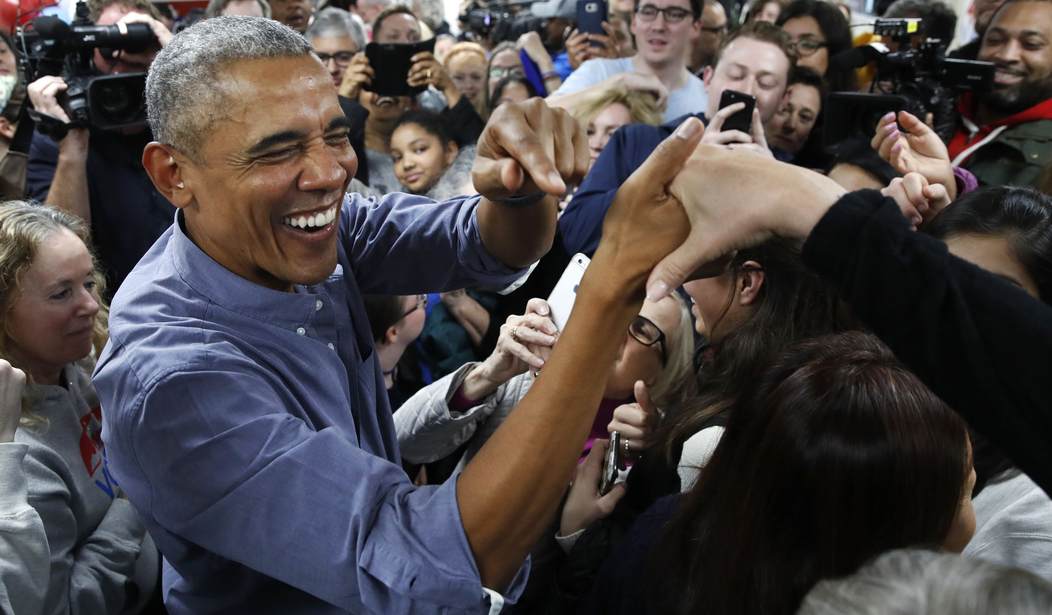Which of the two dozen or so Democratic presidential candidates is going to carry black voters next year? The answer to that question is likely to be identical to the answer to the question "Which candidate is going to be the Democratic nominee, and maybe the president?"
For years, black Americans have cast about 1 out of 4 votes in Democratic primaries. In 2016, they cast 71% of Democratic primary votes in Mississippi, 61% in South Carolina, 54% in Alabama, 51% in Georgia, 46% in Maryland, 32% in North Carolina and Tennessee, and 20 to 28% in Arkansas, Florida, Illinois, Virginia, New York, Michigan, Missouri and Ohio.
Near-unanimous black support helped nominate and elect the last three Democratic presidents -- Jimmy Carter, Bill Clinton and Barack Obama. It's near-unanimous because black voters have tended to vote solidly for one candidate over another in the primaries, even against alternatives with serious claims on their support.
Such solidarity in voting makes sense for people identifying as part of a distinct group suffering discrimination. For years, political reporters have listened as black preachers, avoiding outright endorsements, called for "unity." Their congregations understood what they meant.
Blacks have voted 85% or more Democratic in every presidential election since 1964; as well as in primaries for Jimmy Carter over Ted Kennedy in 1980; for Jesse Jackson in 1984 and 1988; for Barack Obama over Hillary Clinton in 2008; and for Clinton over Bernie Sanders in 2016.
Recommended
If the impulse toward solidarity prevails again in 2020, it's not clear who will benefit. Joe Biden, after eight years as the faithful vice president to the nation's first black president, leads among black voters in current polls. But will he run?
The two candidates with African ancestry, Kamala Harris and Cory Booker, have background atypical of descendants of antebellum American slaves. Harris' father is from Jamaica, and Booker grew up in an affluent black suburb in New Jersey. But then Barack Obama's background was even more atypical: How many Americans grew up in Indonesia?
Plus, there are signs that black voters may not be behaving as monolithically as they used to. Exit polls in the 2016 Democratic presidential primaries showed them favoring Clinton pretty unanimously in the South, giving Sanders only 6 to 19% in former Confederate states. But in New York, Pennsylvania, five Great Lakes states and Missouri, Sanders got between 26 and 32%; he carried three of them and came within 2 points of carrying two more.
Chicago's mayoral election is another example of waning black solidarity. Although Tuesday's runoff was a contest between two black women, neither had carried the city's 19 predominantly black wards in the nine-candidate Feb. 26 initial primary. Mayor-elect Lori Lightfoot's electoral base was whites in upscale Lakefront wards, and her appeal was not connected to race but a lack of entanglement with corruption-tinged insiders.
Interestingly, even on race-related issues, white college graduates, not blacks, are now the most liberal segment of the Democratic electorate. As New York Times blogger Thomas Edsall notes, more white liberals (79%) than blacks (60%) believe that racial discrimination is the main reason many blacks can't get ahead. Fully 32% of blacks say blacks who don't are mostly responsible for that.
Black voters are generally more religious than whites, and much more than white liberals; they cast the deciding votes against same-sex marriage in California in 2008 and opposed it in North Carolina in 2012, changing their minds only after then-President Barack Obama endorsed it a day later. Indeed, blacks make up a large share of the diminishing number of Democratic primary voters labeling themselves as moderate or conservative.
Black Democrats seem less likely than white college-graduate liberals to support, and to identify as litmus tests, positions unpopular with most general election voters, like open-border immigration, ninth-month abortions and the Green New Deal. Perhaps they will prevent "woke" white college graduates -- and a press almost entirely made up of this demographic -- from pulling the Party too far to the left to defeat a Republican incumbent whose job approval seems stuck around 45%.
Or perhaps not. The Democratic Party, from its Jacksonian foundation in 1832, has always been a coalition of out-groups, of people not considered typical Americans. At their best, they're a triumphant majority. At their worst, they're a disorderly rabble. Which will they be in 2020? Black voters will have a big say in that.
Michael Barone is a senior political analyst for the Washington Examiner, resident fellow at the American Enterprise Institute and longtime co-author of The Almanac of American Politics.
























Join the conversation as a VIP Member